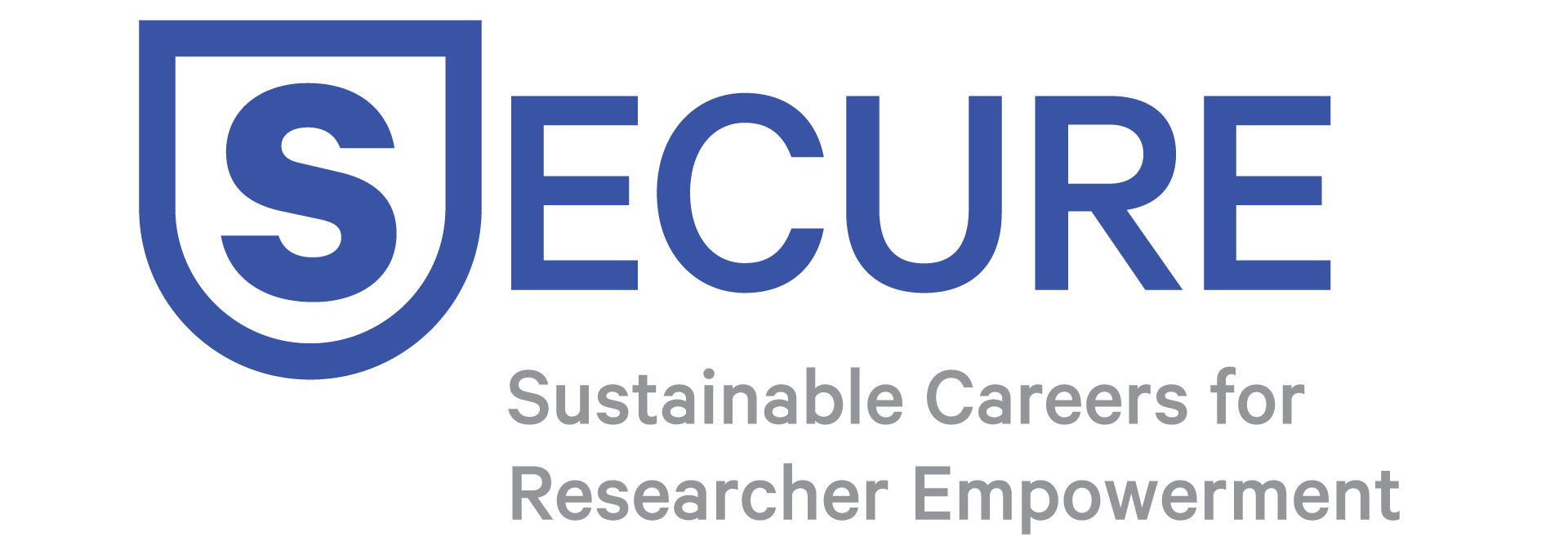Today, Europe faces significant socio-political and economic challenges. Increasing global competition, geopolitical tensions, and an era dominated by technological advancements and artificial intelligence require a robust and dynamic response. At the heart of this response lie researchers, who are the backbone of the research and innovation system. They are crucial to maintaining the continent’s competitive edge and transforming research potential into solutions that improve the lives of citizens and support industries and businesses in Europe and beyond. Their role is also essential in understanding and implementing the systemic transformations required for more sustainable futures. This calls for a serious reconsideration of the choices made with respect to recruitment, performance expectations and assessment, the industrialised publication culture, wellbeing management, and more (Teerikangas et al., 2022). Strengthening research careers is a must for addressing global societal challenges and accelerating the green and digital twin transition. The consequences of pursuing this path – or not – are emphasised by ABIS in its Futures of Business Education 2055 Initiative, a foresight initiative which highlights the opportunities and challenges ahead of higher education, policymakers and society in general, stimulating reflections for developing responsive and adaptive strategies and policies.
The Current Landscape
The European Union (EU) remains a global leader in terms of the number of researchers, boasting a 23.5% share of the world’s researchers (UNESCO, 2021). Despite this, many researchers across EU countries find themselves in precarious employment and working conditions. Significant progress has been made since the launch of the European Research Area (ERA) in 2000. After several developments, a dedicated action on research careers in the ERA policy agenda for research and innovation (2022-2024 and follow up 2025-2027) aims to raise the bar and improve researchers’ careers, opportunities across sectors and employment conditions. While some activities are starting to be implemented, gaps remain, especially in supporting researchers’ careers to have a broader trajectory, enabling flexible careers across various sectors: academia, industry, public administration, or even facilitating and supporting the creation of own start-ups and innovations.
In recent years, the EU has made concerted efforts to improve research careers and reduce precarity. The following initiatives and policies reflect a commitment to fostering sustainable and attractive research careers.
First of all, the Council recommendation on the EU framework to attract and retain research, innovation, and entrepreneurial talents in Europe, adopted at the end of 2023, aims to create a more supportive environment for researchers. The EU-funded project Sustainable Careers for Researcher Empowerment (SECURE), which The Academy of Business in Society (ABIS) and the Young European Research Universities Network (YERUN) are implementing with a diverse consortium of partners, provides a first test ground for realising the EU framework and trialling its key aspects in research performing and funding organisations.
The Coalition for Advancing Research Assessment (CoARA) plays a crucial role in enabling systemic reform and improving assessments that recognise diverse careers, outputs, practices, and activities. The recently published (April 2024) Action Plan by the European Commission to implement the ten commitments of the Agreement on Reforming Research Assessment (ARRA), among many others, exemplifies the importance of CoARA. The plan aims to enhance the quality and transparency of research assessments, recognising diverse career paths and outputs.
Additionally, assessments and expert meetings are already taking place for the Next EU Framework Programme for Research and Innovation (FP10) calling to build on the successes of previous programmes and to further invest in and enhance careers as preconditions for research excellence and innovation. In an April 2024 policy paper, YERUN recommended key priorities to make FP10 highly attractive, impactful and inclusive. This includes strengthening the Marie Skłodowska-Curie Actions (MSCA), a flagship of the EU Framework Programme which has been instrumental in providing funding and support for researchers at all career stages, in promoting international and intersectoral mobility, and in giving support to institutions in improving employment conditions.
Future Directions: Towards an Inclusive and Sustainable Research Ecosystem
For the EU to remain competitive in the global race for talent, it must enable sustainable careers and attractive working conditions for researchers. This includes acknowledging and rewarding different career paths, incentivising researchers to adopt Open Science approaches, and promoting collaboration, openness, and valorisation of research results. This is aligned with the three steps to make careers in academia more attractive and sustainable, as proposed by YERUN in a policy paper published in February 2024.
Advocating for significant reforms, the recent report “Much more than a market” by Enrico Letta proposes adding a ‘fifth freedom’ to enhance research, innovation, and education within the single market. This further aligns with the new European Research Area (ERA) policy agenda, which emphasises improving the quality of research careers and working conditions across Europe.
Several policies, initiatives and tools jointly support and work on improving the development of researchers’ careers and promoting an inclusive and transparent research ecosystem. Among others, it is worth mentioning:
- The New Charter for Researchers updates the provisions of good working conditions and research environments.
- The European Competence Framework for Researchers (ResearchComp) is a tool to facilitate the assessment and development of researchers’ transferable skills, fostering intersectoral careers.
- The European Skills, Competence, and Occupations Classifications (ESCO) system supports the alignment of skills and competences with job requirements.
- EURAXESS serves as a one-stop shop for researchers and innovators, providing essential information and access to job opportunities across Europe.
- RESAVER a pan European pension scheme allowing mobile researchers to remain affiliated to the same pension solution
- The Research Career Observatory (ReICO) will include data and evidence that will serve to effectively monitor research career paths, working conditions, jobs, mobility and to further develop evidence-based policies.
- The new WIDERA Talent ecosystems pilot for attractive early research careers offers support to institutions across sectors to improve researchers’ career development and facilitate cross-sectoral collaboration with enabling framework conditions.
Open Science initiatives like the European Open Science Cloud (EOSC) and the Horizon Europe (HE) programme promote open access to research publications and data, and foster citizen science. Furthermore, broader recognition and rewards systems in research careers are advocated, valuing diverse research outputs and contributions such as societal impact, teaching, and mentoring.
Conclusion
To continue overcoming the challenges faced by researchers and ensure sustainable research careers, the need for coordinated action at the EU level remains. This includes promoting balanced circulation of talent and making Europe an attractive destination for researchers. By fostering a more inclusive, flexible, transparent, and supportive research and innovation ecosystem, the EU can strengthen its leadership at the global level.
The future of research careers in the EU depends on continuous efforts to have adequate investments, improve working conditions, support diverse career paths, and promote collaboration and openness. Within this landscape, the EU-funded SECURE project is an essential catalyst for reaching the ambition of European leaders to make research careers attractive and sustainable. This is a key precondition for the EU to maintain its leading position in research and innovation and drive inclusive societal progress.



